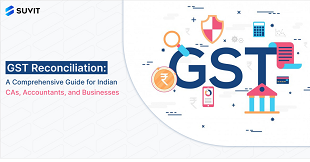Articles by Aisha
Check Trademark Name Availability
Aisha 24 February 2024 at 16:44Trademark is a symbol, word, phrase, or design that distinguishes products from those of others. Trademarks help consumers to identify and choose products they trust.
What's Team Collaboration In CapCut Online Editor And How Does It Benefit You?
Aisha 13 December 2023 at 09:46To work on bigger projects and accomplish greater goals, there must be a stronger collaboration among teams and people who work together. Especially, it is like a guarantee that one is on the right path to accomplish his goals more easily and with greater success.
How Do You Write a Pitch for Sponsorship?
Aisha 09 December 2023 at 11:08Let's talk about getting sponsors on board. It all starts with a sponsorship deck, but what's that really? Think of it as your storybook, where your event or project is the main character.
Cybersecurity for Financial Endeavors
Aisha 30 November 2023 at 16:12The dominance of digital transactions in our era has unlocked unparalleled growth and efficiency opportunities at the intersection of finance and technology. Ye..
Decoding Form 26A: Impact, Role and Procedure
Aisha 28 November 2023 at 14:25Section 201(1) of the Income Tax Act establishes that a person responsible for deducting TDS (Tax Deducted at Source) on distributed income is deemed an "assessee in default" if they fail to deduct or pay the TDS.
GST Reconciliation: A Comprehensive Guide for Indian CAs, Accountants and Businesses
Aisha 20 November 2023 at 13:19In this blog, we will discuss the importance of GST reconciliation, the challenges that businesses face, and how Suvit can help. We will also provide best practices for GST reconciliation and common mistakes to avoid.
Title Loans For Business Owners: How They Can Help Your Small Business
Aisha 04 November 2023 at 13:25This article delves into the benefits of title loans for business owners.
The Impact of Mobile Gaming on the Online Casino Industry
Aisha 25 October 2023 at 12:10Mobile gaming has blown up with the evolution of tech. Click here to learn about the impact on the casino industry.
Top Factors to Consider When Choosing a Corporate FD for Your Business
Aisha 27 September 2023 at 10:42Corporate fixed deposits are investment options provided by NBFCs and other financial institutions. Similar to a conventional bank FD, a corporate FD is a term deposit wherein you can park your funds for a suitable tenor to earn income safely.
MSME: Classification & Role in the Country as of 2023
Aisha 22 September 2023 at 13:32MSME stands for Micro, Small, and Medium Enterprises, which categorizes businesses based on their size and investment levels. Micro is the smallest, Small is a bit bigger, and Medium is larger.
Popular Articles
- Interest Computation Changes under GST (Effective from January 2026)
- TDS Rate Chart For Tax Year 2026-27: With Revised Section Codes in Challans
- Revised Return Due Date Extension
- Tax Deduction Rules for Employee Contributions From April 2026
- TDS and TCS: The New Shields and Arrows of the Taxpayer
- Cheque Bounce Rules in India: What Changes in 2026 Mean for You
- Tax Calculation Slabs For FY 2025-26 (AY 26-27)
- Comprehensive Guide to Statutory, Tax & Regulatory Compliances for Hotels
Trending Online Classes
-
DT & Audit (Exam Oriented Fastrack Batch) - For May 26 Exams and onwards Full English
 CA Bhanwar Borana & CA Shubham Keswani
CA Bhanwar Borana & CA Shubham Keswani -
IDT LIVE Exam Oriented Batch | May 2026, Sept 2026 & Jan 2027
 CA Arpita Tulsyan
CA Arpita Tulsyan














 CAclubindia
CAclubindia
